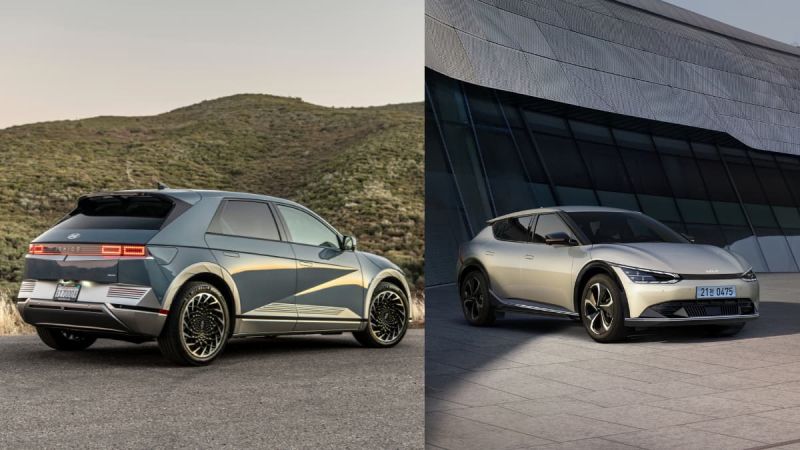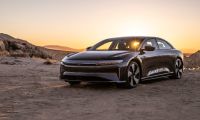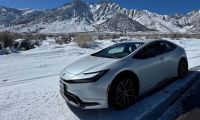When Tesla recently announced yet another round of price cuts on their EVs, or even before, many journalists kept using words like “price war” to describe what was happening. It makes a certain kind of sense, especially after last year's seemingly never ending price increases. But I am just going to say that “price war” isn’t really the best way to frame this scenario. If anything, it is more about a response to the economic headwinds (read that as high auto loan interest rates) and the need to drive sales numbers up as the negative pressure from high interest rates restricts growth. That said, some car manufacturers are still responding to Tesla’s recent price cuts by also cutting prices on their EVs (Ford did this for the Mustang Mach-E for example). What complicates this further is the revision to the US federal tax incentives that the Inflation Reduction Act wrought, effectively removing the tax incentive for many foreign made/assembled plug-in vehicles. But Kia and Hyundai, among others, are also doing something(s) different: Kia and Hyundai are focusing on dealer incentives as well as leasing new EVs. This is because leasing the EVs means they are still eligible for the $7,500 tax rebate which they otherwise would no longer be eligible for, though the $ goes to the company leasing the vehicle and so in theory the lower price is passed on the savings to the lessee. These are strategies that will help Kia, Hyundai and Geneses until they can bring new US based manufacturing facilities online, a strategy other foreign automakers are pursuing as well. Will those strategies work? Let’s ponder things for a bit.
As long as lessees receive the benefit of the $7,500 tax break that EVs can get, then this approach is a truly viable alternative for many, especially considering the rising interest rates (since the monthly payment for leases typically cost less to begin with). It creates more options for people, especially those who may not be able to afford a new electric car, otherwise. Hyundai, Kia and Genesis are thus very smart to take this approach (one they may have lobbied for) and it plays to their established value brand identity as well. Plus, it also serves to expand the pool of lightly used, benefit-eligible EVs a few years down the road when those leases end and the purchase incentives currently in place at the federal level also give out $4,000 for the purchase of used EVs, so one can see how this would benefit those looking for the lowest possible EV options. Ultimately, these circumstances and the approaches automakers are using to address them are changing the EV marketplace for consumers in the US, and apparently there are real benefits to these approaches for US consumers (and job seekers too, since new manufacturing plants will be opening in the near future).
Dealer incentives are likely a slightly less effective way to go about this since the approach won’t be uniform (some dealers will offer the incentives, others won’t, or offer more/less than others). But still, it is a way for car makers to lower the effective price, for some. But how well are these two strategies going to work, considering only about 5% of all leased vehicles in the US are “green” vehicles? In my opinion, when combined with the other approaches above, the dealer incentives are likely to work especially well, at least initially/for a period of time for Kia, Hyundai and Genesis in particular (all part of the HMG automotive group). I say that because although the market for leasing new vehicles is limited, that may be fine since automakers only need a few years to bring their new US based production facilities online and or increase the US/free trade aligned sources of battery content, which will requalify them for the federal incentives again (right about the time those switch to point of sale incentives). For this reason, I predict that the recent EV sales stagnation, or declines, for Kia, Hyundai and other foreign automakers will likely begin turning around soon.
What do you think? Will these strategies perhaps be even more successful than simple price cuts? Will they allow automakers like Kia and Hyundai to grow their sales and continue to take market share from Tesla? Please leave your questions and comments below.
Images courtesy of Kia and Hyundai.
Justin Hart has owned and driven electric vehicles for over 15 years, including a first generation Nissan LEAF, second generation Chevy Volt, Tesla Model 3, an electric bicycle and most recently a Kia Sorento PHEV. He is also an avid SUP rider, poet, photographer and wine lover. He enjoys taking long EV and PHEV road trips to beautiful and serene places with the people he loves. Follow Justin on Twitter for daily KIA EV news coverage.
Set Torque News as Preferred Source on Google











